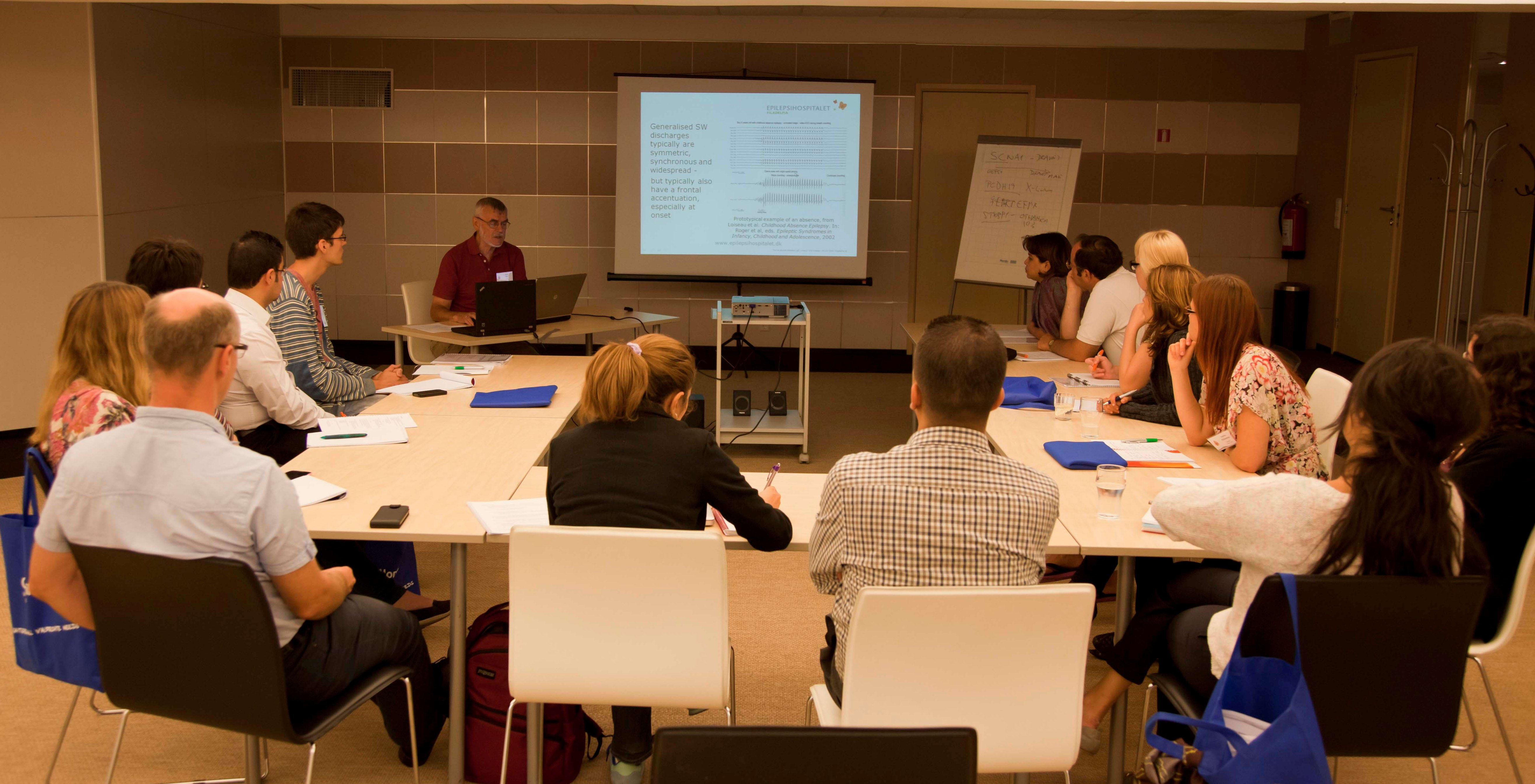
7th Baltic Sea Summer School on Epilepsy
Viimsi, Estonia
18 - 23 August 2013

The Seventh BSSSE took place in Viimsi close to Tallinn, Estonia, on August 18 – 23, 2013. Our local host was the Estonian League against Epilepsy represented by Dr. Sulev Haldre of Tartu.
The course was attended by 42 participants from 23 countries: Azerbaijan, Belgium, Denmark, Egypt, Estonia, Finland, Georgia, Ireland, Israel, Japan, Latvia, Lithuania, Malaysia, Mexico, Moldova, Netherlands, Portugal, Romania, Russia, Turkey, Ukraine, Uruguay and Uzbekistan. If nationalities are considered, Ecuador, Germany, Iran and Spain can be added. The average age of the participants was 32.2 years, which reflects well the primary target group of this summer school, young post-graduates and PhD students.
The faculty consisted of 14 teachers from the Baltic Sea region: six from Denmark, three from Germany, two from Norway and one each from Estonia, Lithuania, and Finland. They covered the following topics:
Clinical epileptology
- Symptomatic epilepsies in adults
- Symptomatic epilepsies mimicking idiopathic epilepsies
- Subjectiva and objective seizure symptoms
- Reproductive aspects in epilepsy
- Genetics and epilepsy
- Remission in adult patients
- Convulsive and non-convulsive status epilepticus
- Psychiatric comorbidities
Diagnostics
- Seizure semiology and anatomy
- Epilepsy diagnostics: what is useful and necessary?
- Advanced diagnostic approaches
- Epilepsies and non-epileptic conditions of childhood: differential diagnosis
- Video quiz: epilepsy or not?
Research
- New approaches in preclinical AED development
- From mechanisms to biomarkers for epileptogenesis
- Ontogenetic excitability changes
Therapy
- AED pharmacology: Newest antiepileptic drugs and Orphan drugs
- Use of acute drugs in epilepsy management
- Radiosurgery and radiotherapy of epilepsy
Basic aspects
- Functional neuroanatomy
- The present understanding of “generalized” and focal ictogenesis
The study methods at the BSSSE are strongly interactive with only two to three frontal lectures per day; the remainder of the time is tutorials (including journal clubs), case-oriented study, and discussion of cases submitted by participants in small group settings. The course evaluation confirmed once again the students’ high appreciation of the interactive methods, where case-oriented study and the early morning seminars received the highest marks.
The majority of participants attended with bursaries, for which the organisers are very grateful to:
- Commission of European Affairs of the ILAE
- Danish Epilepsy Society
- Estonian League against Epilepsy
- German Society for Epileptology
- Norwegian Epilepsy Society
- Society of Epileptologists of Lithuania
- Peter & Jytte Wolf Foundation for Epilepsy
- UCB Nordic
Subscribe to the ILAE Newsletter
To subscribe, please click on the button below.
Please send me information about ILAE activities and other
information of interest to the epilepsy community


